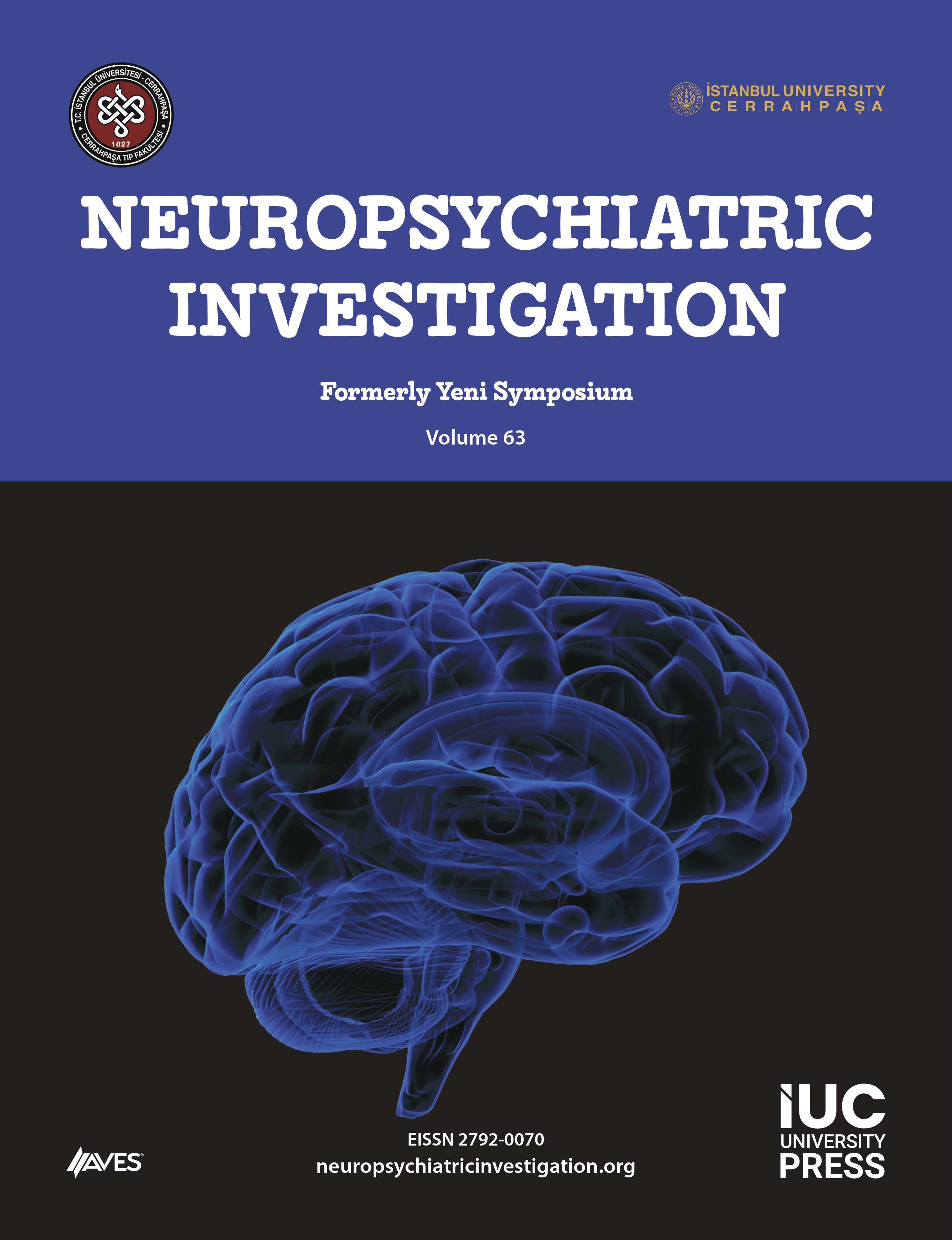Objectives: In this study, we aimed to compare serum uric acid levels in patients diagnosed with antisocial personality disorder with a healthy control group, and also to investigate the relationship between serum uric acid levels and impulsivity and aggressive attitudes.
Methods: The study was conducted with 126 individuals (69 with antisocial personality disorder, 57 controls). The Sociodemographic Data Form, the Barratt Impulsivity Scale (BIS-11), and the Buss–DurkeeHostility Inventory (BDHI) were applied to all participants. Venous blood samples were collected from all participants to measure serum uric acid levels.
Results: It was determined that both the BIS-11 and the BDHI sub-dimensions, and the total scores of the antisocial personality disorder patients were higher when compared to the healthy control group. The serum uric acid levels of the patient group were significantly higher when compared to those of the control group. Furthermore, there was a significant positive correlation between serum uric acid level and Barratt Impulsivity Scale–11 (r=0.635, P < .001) and Buss–Durkee Hostility Inventory (r=0.572, P < .001) scores.
Conclusion: In our study, it was found that serum uric acid levels were higher in patients with antisocial personality disorder, which is characterized by impulsivity and aggressive behavior, when compared to the control group. The findings of the present study suggest that purinergic dysfunction may also play a role in the etiopathogenesis of the disease. Further studies are required to determine whether this was a cause or an outcome.
Cite this article as: Yıldız S, Kazğan A, Kurt O, Korkmaz S, Uğur K. The correlation between serum uric acid level and certain clinical variables in antisocial personality disorder patients. Neuropsychiatr Invest. 2021;59(2):45-52.




.png)